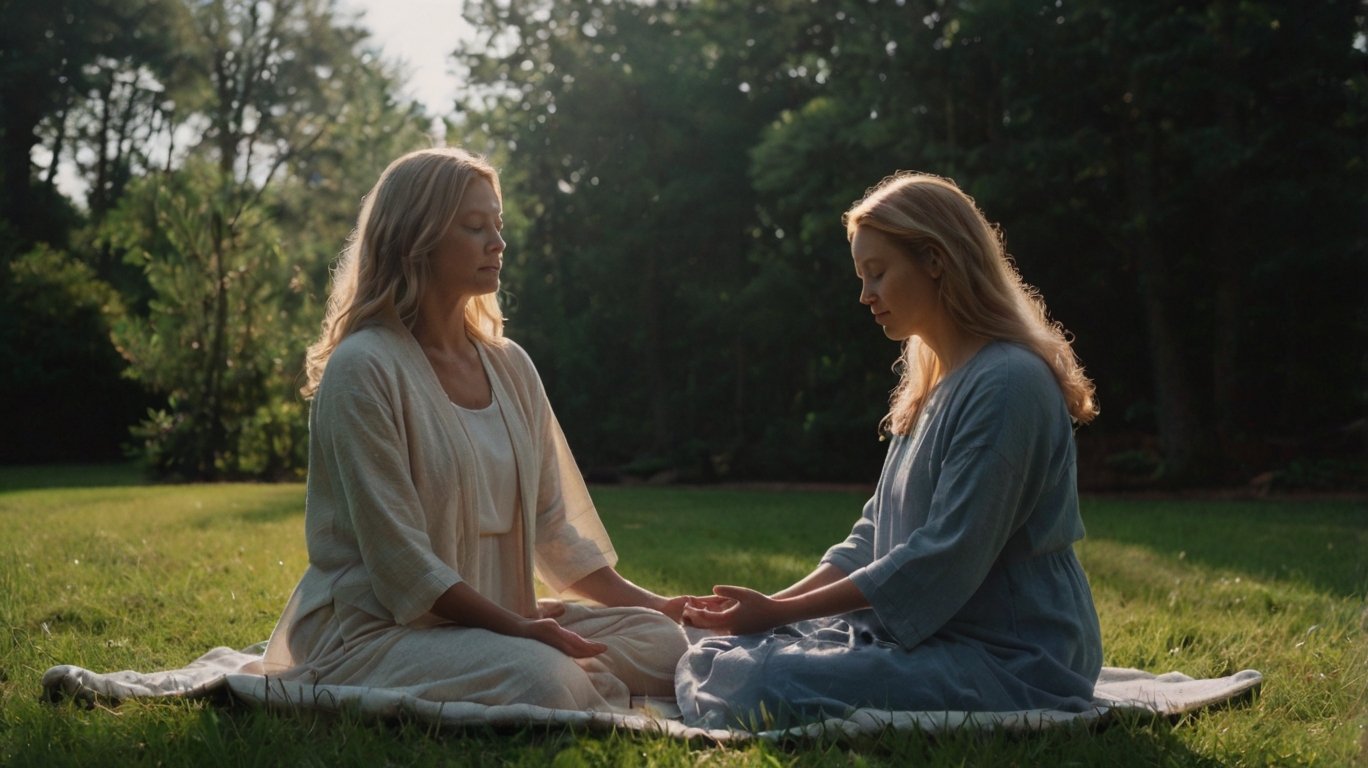Need a moment to breathe? Guided meditation is one of the simplest and most powerful ways to reset your mind, connect with your body, and find inner peace. Whether you’re just starting out or looking to deepen your practice, this article offers a full guided meditation script you can use anytime.
Let’s take a peaceful pause together.
What is Guided Meditation?
Definition and Purpose
Guided meditation is a form of meditation led by a narrator or teacher. It helps you relax and focus through verbal instructions, often including visualizations, affirmations, and breathing cues.
How It Differs from Silent Meditation
Unlike silent or self-guided meditation, this method provides structure—ideal for beginners or anyone who finds their mind wandering.
Benefits of Guided Meditation
Stress Reduction
By focusing on your breath and body, you move out of fight-or-flight mode into a calmer state.
Improved Focus and Mental Clarity
Regular practice helps train your brain to concentrate and clear mental clutter.
Emotional Healing and Self-Awareness
Meditation fosters a deeper connection with your emotions, promoting healing and resilience.

Preparing for Meditation
Finding a Quiet Space
Choose a peaceful environment where you won’t be disturbed. If you can, turn off your phone and turn down the lights.
Setting an Intention
Decide why you’re meditating—whether it’s to relax, gain clarity, or let go of stress.
Posture and Breathing Tips
Either lie down or sit comfortably with your back straight. Gently rest your hands.
Full Guided Meditation Script
Introduction to the Practice
Let’s begin.
Take a deep breath in… and let it go.
Again—breathe in… and out.
Allow yourself to settle into this moment. You are safe, you are supported, and this time is just for you.
Grounding and Breath Awareness
Feel your body touching the ground or chair.
Notice the rhythm of your breath. No need to change it—just observe.
With every exhale, release any tension you’re holding. With every inhale, invite in calm.
Body Scan for Deep Relaxation
Raise your consciousness to the top of your mind.
Softly notice any sensations there. Let go of tightness.
Continue this slow scan down your neck, shoulders, arms, chest…
All the way down to your toes.
With each part, gently release any tension and feel it melt away.
Visualization for Calm and Clarity
Now, imagine yourself in a serene place. It could be a quiet beach, a forest, a mountaintop—wherever you feel peace.
Feel the gentle breeze, hear the soft sounds of nature.
Breathe in the calm of this place. Let it fill you.

Affirmations for Positivity
Silently repeat after me:
“I am calm. I am grounded.”
“I let go of what I cannot control.”
“I trust in the process of life.”
“I am enough, exactly as I am.”
Returning and Closing the Session
Begin to bring awareness back to your body. Wiggle your fingers and toes gently.
Take a final deep breath in—and exhale with a smile.
When you’re ready, gently open your eyes.
Take a moment to thank yourself for showing up.
Tips for Using This Script
Reading Aloud or Recording
You can read this script aloud slowly or record it in your own voice for replay. Speaking in a calm, soothing tone helps set the mood.
Adjusting for Length or Focus
Don’t have 10–15 minutes? Shorten it to just the body scan or affirmations. Customize it to fit your time and goals.
Customizing Guided Meditations
Personalizing Affirmations
Use words that resonate with you. For instance, “I am healing” or “I have complete faith in myself.”
Creating Themed Visualizations
Imagine places that hold meaning—like a childhood home, a peaceful lake, or a cozy cabin. The more vivid, the better.
When and How Often to Meditate
Best Times of Day
Mornings are ideal for setting the tone. Evenings help you wind down. But honestly? Anytime is the right time.
Creating a Routine
Even 5 minutes daily makes a difference. Consistency beats length.
Using Guided Meditation for Sleep
Script Adjustments for Nighttime
Use a slower pace, a softer tone, and eliminate energizing affirmations. Focus more on body relaxation and letting go.
Creating a Sleep Ritual
Combine your meditation with soft music, low lighting, and a warm blanket for ultimate comfort.
Common Challenges and How to Overcome Them
Restlessness or Mental Chatter
It’s normal. Just observe your thoughts without judging them, then bring your attention back to your breathing.
Doubts About “Doing It Right”
There’s no wrong way to meditate. Showing up is enough.
Integrating Meditation into Daily Life
Micro-Meditations
Take 1-minute pauses during your day. Close your eyes, breathe deeply, and reset.
Staying Present Throughout the Day
Use simple mindfulness cues—like feeling your feet on the floor or taking a conscious breath—to return to the now.
Conclusion
Guided meditation is your reset button. Whether you use it to wind down, find focus, or just catch your breath, it’s a practice that can bring lasting change to your mind and soul. Allow this script to accompany you on your quest for inner tranquility.

FAQs
1. How long should a guided meditation be?
Anywhere from 5 to 30 minutes works well, depending on your goals and schedule.
2. Can I use guided meditation daily?
Yes! It’s a wonderful habit to build into your routine.
3. Should I sit or lie down during guided meditation?
Either works—just make sure you’re comfortable and won’t fall asleep if alertness is your goal.
4. Is guided meditation good for beginners?
Absolutely. It offers structure and support that’s especially helpful if your mind tends to wander.
5. Can I write my own guided meditation scripts?
Yes! Personal scripts can be even more powerful because they speak directly to your needs.










